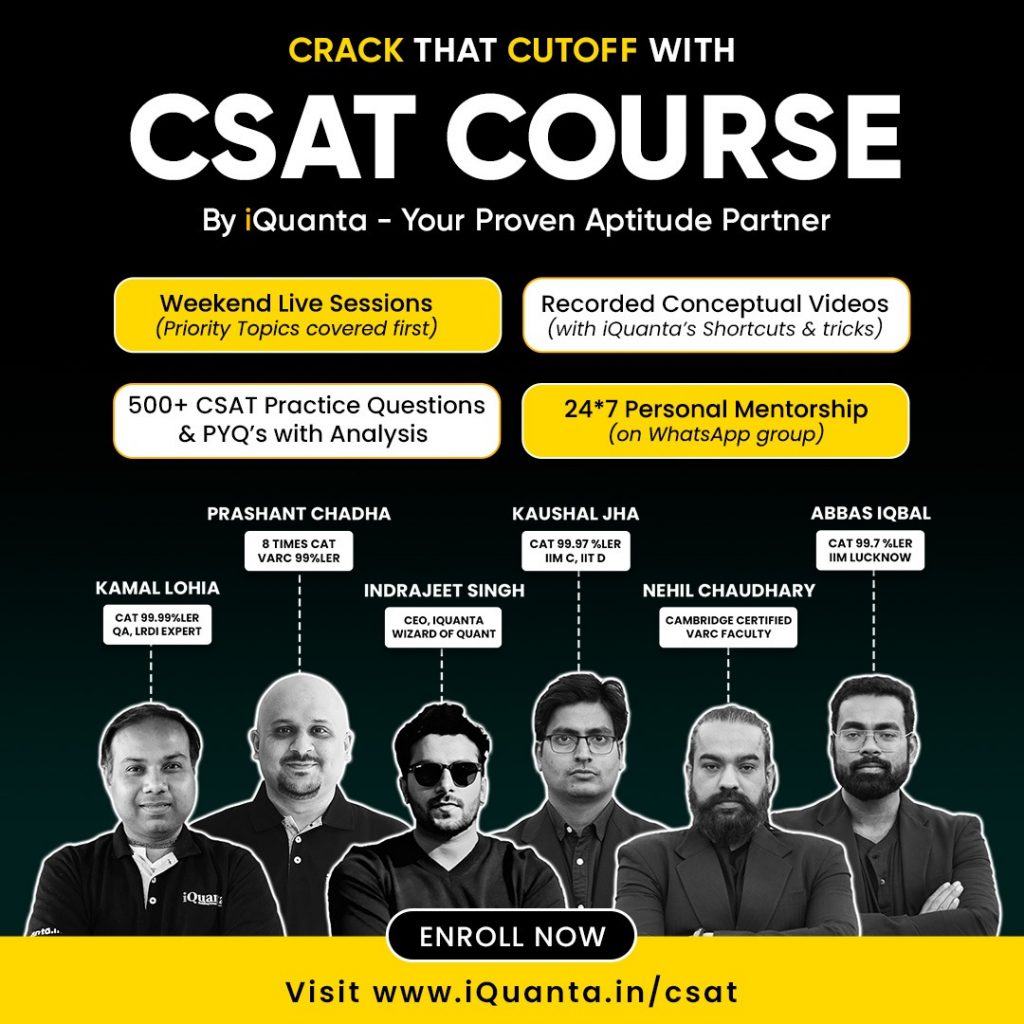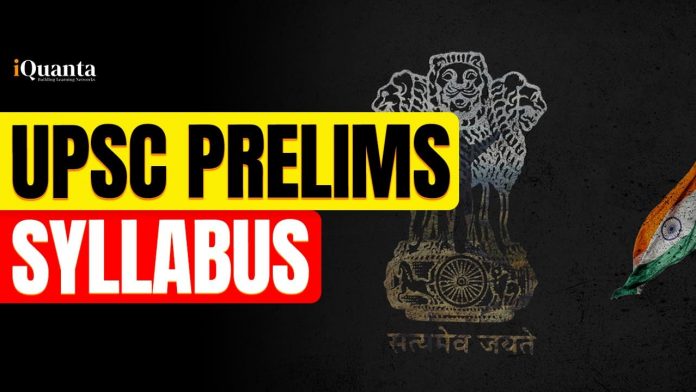In this article we will delve deeper into all the topics and sub-topics that fall under the UPSC Prelims Syllabus. Additionally it provides guidance on structuring your study strategy by encompassing the complete UPSC Prelims Syllabus for 2024. Familiarity with the extensive UPSC Prelims test syllabus not only boosts confidence but also facilitates the formulation of an effective exam-clearing strategy.

UPSC Prelims Syllabus: Overview
The latest notification from the Union Public Service Commission has unveiled the UPSC Prelims Syllabus. The UPSC Prelims Exam for 2023 took place on May 28th, 2023, while the upcoming UPSC Prelims 2024 is scheduled for May 26th, 2024. With GS (General Studies) 1 and GS 2 (CSAT) papers comprising the initial stage, candidates must thoroughly grasp the UPSC Prelims Syllabus to prepare effectively for the forthcoming IAS Exam. Encompassing subjects like history, geography, economics, science, polity, and current affairs, the UPSC Prelims Syllabus Subject-Wise covers a broad spectrum. This article delves into the intricate details of the UPSC CSE Prelims Syllabus, exploring its structure, essential topics, and more.
General Studies: Paper 1
Paper 1 Exam Pattern
| Duration | 2 Hours |
| Total Questions | 100 Questions |
| Total Marks | 200 Marks |
| Mode of Exam | English/Hindi |
| Correct Answer | 2 Marks |
| Wrong Answer | -0.66 Marks (-1/3 of the total allotted marks to the question) |
| Question Type | MCQ Type |
Paper 1 Exam Syllabus
As per the UPSC Prelims Syllabus 2024, the key areas accessed in this exam are Indian Polity, History, Indian and World Geography, Economic and Social Development, Environmental Ecology, Current Affairs and General Science.
- Indian Polity and Governance – Encompasses topics such as the Constitution, Political System, Panchayati Raj, Public Policy, and Rights Issues.
- History – Covers the History of India and major events that happened, along with the Indian National Movement.
- Indian and World Geography – Includes the Physical, Social, and Economic Geography of India and the World.
- Economic and Social Development – Addresses aspects like Sustainable Development, Poverty, Inclusion, Demographics, and Social Sector initiatives.
- Environmental Ecology – Discusses general issues concerning Environmental Ecology, Biodiversity, and Climate Change without requiring specialized subject knowledge.
- Current Affairs – Focuses on Current events of both national and international significance.
- General Science – Examines the Latest topics related to science and technology.
General Studies: Paper 2
General Studies Paper 2 or CSAT is a qualifying exam i.e. the candidates have to clear a set minimum cut-off to move forward to the UPSC Mains examination. It is compulsory to clear the cut-off of this aptitude based exam to become eligible for the UPSC Mains examination.
Paper 2 Exam Pattern
| Duration | 2 Hours |
| Total Questions | 80 Questions |
| Total Marks | 200 Marks |
| Correct Answer | +2.5 Marks |
| Wrong Answer | -0.83 Marks |
| Un-attempted Question | No Marking |
| Qualifying Marks | 66 Marks |
Paper 2 Exam Syllabus
As per the UPSC Prelims Syllabus 2024, the key areas evaluated in the exam include Basic Numeracy, Comprehension, Data Interpretation, Logical Reasoning & Analytical Ability, Interpersonal Skills, Decision Making & Problem-Solving Skills, and General Mental Ability.
Basic Numeracy:
- Number System
- Divisibility Rules
- Remainder Theorem
- Square Roots & Cube Roots
- Surds & Indices
- Ratio & Proportion
- Percentages
- Averages
- Decimal Fractions
- HCF & LCM
- Simplification
- Set Theory
General Mental Ability:
- Time and Work
- Mixtures and Allegations
- SI-CI
- Permutation and Combination
- Pipes and Cisterns
- Mensuration
- Time, Speed and Distance
- Boats and Streams
- Partnership
- Geometry
- Algebra
Logical Reasoning and Analytical Ability:
- Coding Decoding
- Analogy
- Series
- Mathematical Reasoning
- Ranking
- Statement and Assumption
- Statement and Arguments
- Cause and Effect
- Punch Lines
- Clocks
- Calendars
- Cubes and Dice
Data Interpretation:
- Charts
- Venn Diagrams
- Mathematical Puzzles
- Seating Arrangement
- Case lets
Decision Making and Problem Solving Skills:
- Critical Thinking
- Analysis
- Judgement
- Conclusions and Arguments
- Intelligent Problem Assessment
- Analytical Reasoning
- Effective Resolution
Comprehension:
- Reading Comprehensions
- Vocabulary
- Inferences and Conclusions
- Summary
- Evaluation
- Critical Thinking
Interpersonal Skills:
- Effective Communication
- Emotional Intelligence
- Problem Solving
To stand out from the crowd and clear the CSAT examination, visit iQuanta CSAT Course or click on the image below to get yourself enrolled in the course and be a part of the winning clan.


